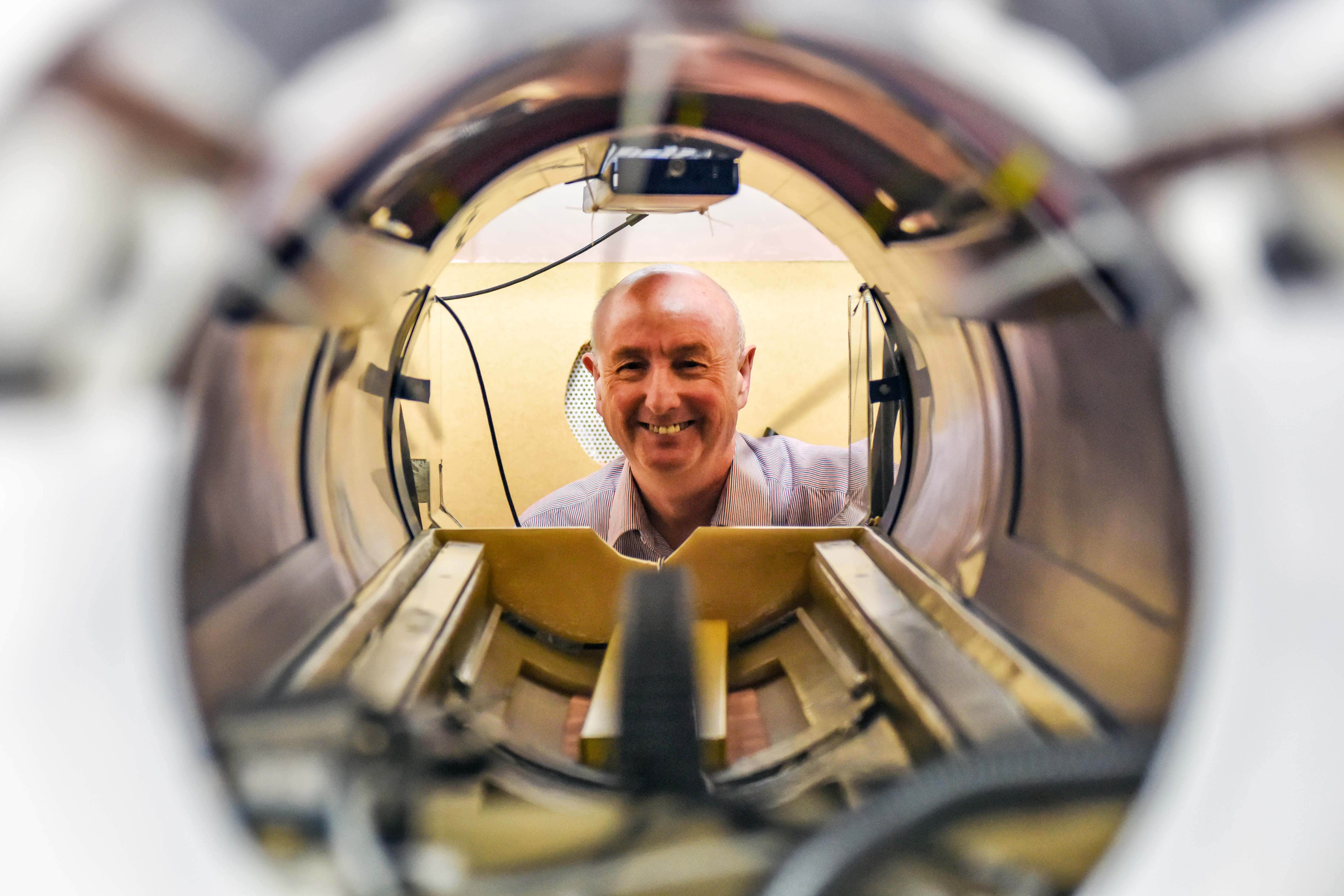New type of medical scanner could help stroke patients – research
The scanner has been developed by a University of Aberdeen team.

Your support helps us to tell the story
From reproductive rights to climate change to Big Tech, The Independent is on the ground when the story is developing. Whether it's investigating the financials of Elon Musk's pro-Trump PAC or producing our latest documentary, 'The A Word', which shines a light on the American women fighting for reproductive rights, we know how important it is to parse out the facts from the messaging.
At such a critical moment in US history, we need reporters on the ground. Your donation allows us to keep sending journalists to speak to both sides of the story.
The Independent is trusted by Americans across the entire political spectrum. And unlike many other quality news outlets, we choose not to lock Americans out of our reporting and analysis with paywalls. We believe quality journalism should be available to everyone, paid for by those who can afford it.
Your support makes all the difference.A new type of medical scanner can identify brain damage in stroke patients at lower magnetic fields than ever before, researchers have revealed.
The Field Cycling Imager (FCI), described as a world-first, derives from MRI but is able to work at ultra-low magnetic fields including below that of a fridge magnet, while obtaining good quality pictures.
Its developers at the University of Aberdeen said this makes it capable of seeing how organs are affected by diseases in previously unseen ways.
Magnetic resonance imaging (MRI) uses strong magnetic fields and radio waves to produce detailed images of the inside of the body without touching it.
The FCI scanner is based on the same principles, but its design means that it can vary the strength of the magnetic field during the patient’s scan.
Researchers said that being able to vary the magnetic field makes it like having multiple scanners in one and it can therefore extract more – and different – information than traditional MRI.
A paper published in Radiology has shown that the stroke area due to a blocked blood vessel in the brain produces a consistently different signal from a normal brain at very low magnetic field strengths.
Researchers said the FCI could lead to the development of systems tailored for ambulances and other out-of-hospital settings.
Professor Mary Joan MacLeod of the University of Aberdeen, Professor of Stroke Medicine, said: “Our initial findings are very exciting, as they reflect the first step to producing a device that would be safe and small enough to put in an ambulance so that stroke patients can have a diagnosis and start treatment before they reach hospital.
“We have also shown that the new scanner can also identify bleeds in the brain, and changes in the small blood vessels which might lead to dementia.
“We know that there are lots of other exciting potential applications for this technology in areas such as cancer and bone disease.
“We would like to thank all the patients who have so enthusiastically helped us get to this stage.”
The team said the success of the project is the result of a long research effort and a strong collaboration between the University of Aberdeen and the stroke team at Aberdeen Royal Infirmary.
They are now planning to continue the study using the next design iteration of the field-cycling technology, which will be located directly inside Aberdeen Royal Infirmary.
Professor David Lurie, Emeritus Professor of Medical Physics at the University of Aberdeen, said: “It is fantastic that Field-Cycling Imaging, which the Aberdeen team has been developing for more than a decade, is now showing its value in the assessment of stroke.
“This work points the way forward for FCI, with benefits to patients and health services worldwide.”